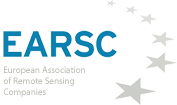There was an extremely high demand and many were refused registration, but I was one of those able to attend the Research & Innovation days organised by DG RTD in Brussels earlier this week. It was a really large event with some 3000 researchers converging on an old industrial site decked out for the occasion. It was certainly an interesting and unusual location – but worked fine. Attendance had been restricted and I understand that “thousands” who had wished to attend were not able to.
The goal was to promote exchange and consultation with the European R&I community to gather views and give the final shape to the Horizon Europe programme; the next framework programme under the 2021-2027 financial period. It provided an opportunity to meet with EC officials dealing with the various parts of Horizon Europe but whilst a lot of networking was going on, the sheer numbers meant that meetings mainly took place in the various workshops being organised as finding individuals was difficult unless you knew that they were present. Even so I did manage a few “random” useful meetings in addition to those with EC people.
I think the most striking part and one of the new features of Horizon Europe is to introduce 5 missions. These mark the key difference from H2020. Each will set out major societal goals linked to global challenges. According to the EC web-site:
A number of missions will be included in Horizon Europe the next framework programme and these will specifically target global challenges. The target would be clearly measurable and need to be achievable with a portfolio of research and innovation measures.
The missions will not incorporate R&D directly but rather will draw upon that within the overall programme. This means that they will play a strong role in shaping the programme elements. The missions are seen as grandiose, setting out European goals and meaningful by citizens. They are likened to the 1960’s Kennedy mission to place a man on the moon and return him to earth before the end of the decade.
I joined a workshop on the mission for adaption to climate change. This is a new subject for me as we normally focus on mitigation and resilience. But here the goal is to offer measures which would kick-in if climate change mitigation is not effective. One participant considered it is like setting a plan B for humankind and the planet.
But what should be the targets and does setting some risk to undermine efforts at mitigation? For accepting adaption targets is linked to accepting that certain levels of climate change are inevitable. Maybe they are (inevitable) but at what levels? Too low and the adaption measure may be inadequate; too high and they may be unnecessary. Then what should be the measurable goals? If plan B is being executed is it against the criteria of survival? Not very attractive! How about a green domestic product? Some discuss natural capital accounting; is this different? What about using a happiness index as in Bhutan and in some Scandinavian countries?
I have the impression that these “missions” could become very important. Whatever the goals for the mission on climate change adapation, EO will have a strong role to play as it will in all the other missions as well. We’ll provide an analysis of Horizon Europe and where it is heading in due course as well as our views on where EO services can be considered.

This page has no comments.